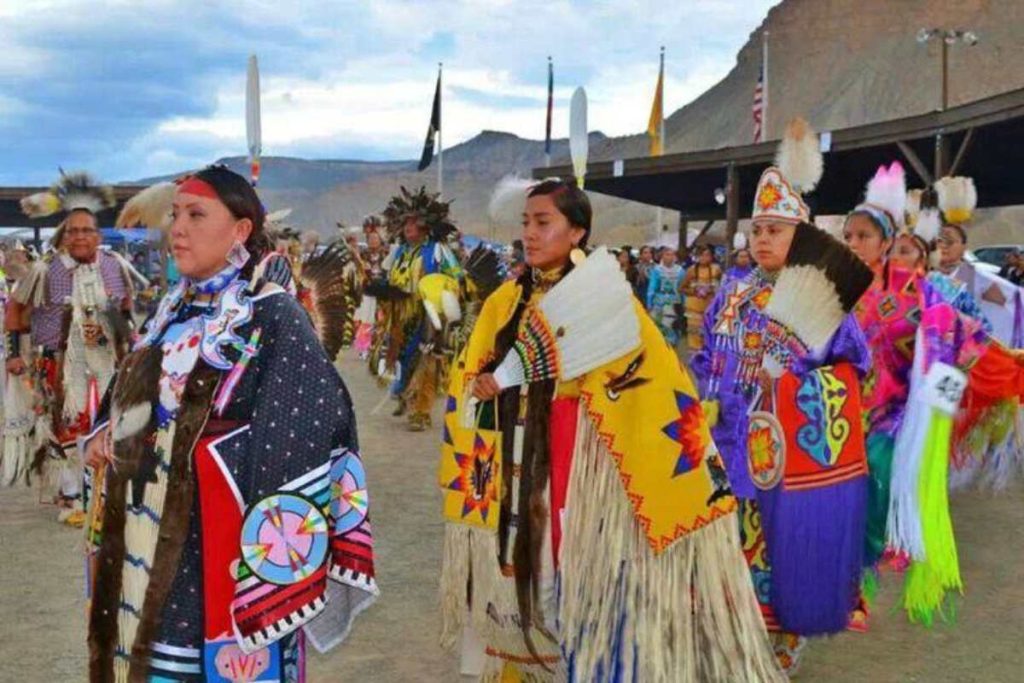
The Mole Lake Ojibwe tribes hold thousands of years of expertise in nature conservation. They believe their traditional ecological knowledge is critical to safeguarding resources and cleaning up the land, air, and water.
Also, they’re keenly aware that the human relationship with nature is one of history’s most critical junctures. Consequently, experts believe the tribes’ ecological knowledge is crucial to climate change.
In August 2023, brown spot disease decimated the tribe’s wild rice crop for the year. According to reports, the lake is home to the last wild rice bed on the Mole Lake Sokaogon Ojibwe Reservation. Also, it houses one of the few ancient beds left in Wisconsin.
Consequently, researchers collect seeds annually for reseeding projects in other parts of the state. Aside from their nutritional and cultural value, wild rice beds create a habitat for fish. In addition, they filter pollutants and nutrients out of the water and provide food for migrating birds.
ALSO READ: Eastern U.S. Residents Spot Rare Red-Flanked Bluetail Bird for the First Time
However, this year, Robert Van Zile Jr., chairman of the Mole Lake Ojibwe Tribe, looked over Rice Lake in dismay. He also had to deny researchers and other outside harvesters so there would be enough for tribal members.
According to Van Zile’s son, Leelyn Van Zile, rice is essential for the tribe. He said some members without jobs must provide for their families. He added that the rice, “manoomin,” in Ojibwe, is a staple in their diet.
Following the brown spot outbreak, researchers concluded the fungus causing it is spreading because it thrives on intense rainfall. They added that the humid weather ushered in by climate change also contributed to its spread. Hence, natural resources will be stressed further as extreme conditions become more common.
The Indigenous communities that call Mole Lake home have practiced good land stewardship and shared that message with others. However, they haven’t shared that message for some time now.
POLL — Is Climate Change a Major Threat That Requires Immediate Policy Action?
While some say it is an environmental issue, others argue it’s legal. According to reports, the federal government failed to uphold tribal treaty rights against the state and developers consistently.
Bazile Minogizhigaabo Panek, a member of the Red Cliff Band of Lake Superior Ojibwe, expressed his concern. He said that if the tribe doesn’t have access to the walleye or wild rice anymore, it is the fault of the U.S. He also added that the U.S. government violated the treaty.
Wisconsin is home to 11 federally recognized tribes. Of those, six are Ojibwe, whose people started migrating from the East Coast to the upper Great Lakes region. While migrating over 1,500 years ago, they searched for a place to settle.
ALSO READ: Are the Wolves Back? Here’s Why California Residents Are Worried
However, several treaties forced the Ojibwe to cede tens of millions of acres to the U.S. government. They signed four treaties in 1836, 1837, 1842, and 1854, creating Michigan, Wisconsin, and Minnesota.
However, in recent years, there have been calls to integrate tribes’ ancestral knowledge and Western science. Geography professor Evan Larson says science breaks things down into pieces, sometimes missing the bigger picture.
While people often think traditional ecological knowledge is folklore, it is not. “It has been through thousands of years of experimentation and trial and error,” said Panek. “It’s a science in its own right,” Hence, many believe the integration is a means to find better ways to understand and manage the land.
You Might Also Like:
FBI Warns Israel-Hamas Conflict May Amplify Threats to Public By Terrorists This Holiday
Judge Dismisses Cattlemen’s Request to Halt Wolf Reintroduction in Colorado
Mother of Virginia 6-Year-Old Who Shot a Teacher Bags Two Years in Prison for Child Neglect
Carol Swain Accuses Harvard Of “Redefining” Plagiarism to Protect President Claudine Gay
Supreme Court Justices Gorsuch, Thomas, Barrett, and Kavanaugh Sign Dobbs Opinion Without Revision
